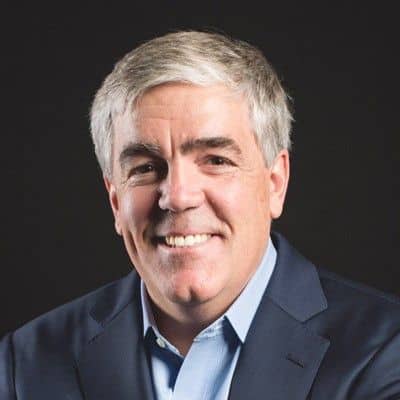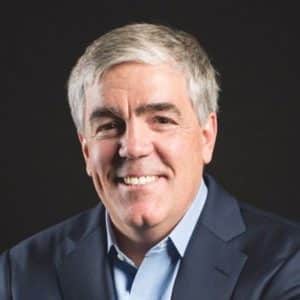In the 1960s, Ted Levitt wrote a now-classic article for the Harvard Business Review called Marketing Myopia, a phenomenon that describes when a company focuses so closely on selling their products – that they don’t notice what’s going on outside of their four walls.
They are lulled into complacency. (It’s what we’ve always done, why isn’t it working?) They don’t see that customer needs have changed. Levitt cites the railroad lines, which misguidedly thought they were in the train business, not the transportation business, and missed the opportunity to expand into other modes of transportation.
The outcome? The railroad lines quickly faded away. They lost out to other companies that were happy to take their passengers.
Are some distributors now experiencing a Pandemic Myopia?
While many distributors in my latest research (look for it in August) acknowledged that they need to adapt their leadership approach for a new era, there were still some who saw no reason to change the status quo when it came to how they ran their companies.
Are they lulled by a false sense of security? I understand why they think that way. As businesses, many got through the pandemic much stronger than we expected.
But what stands out to me is this: A fifth of respondents to the survey didn’t agree that the “very nature of leadership” has changed as a result of the changes we’ve seen since March 2020:
- Supply chain uncertainty, labor shortages and inflation pressures
- The shifting needs, wants and desires of employees around flexibility, benefits and pay
- The transition of leadership and management to the next generation
- A clear change in the employer-employee relationship, with a focus on work-life balance and a shifting definition of meaningful work
When you consider these factors, you realize it’s less about the individual changes, and more about the accelerating confluence of change – most of which distributors won’t be able to control.
If a leader operates the same way they did even three years ago in this rapidly changing environment, they are risking a lot.
As part of our research, I spoke with a longstanding leader in the industry who asked distributors at a recent trade show how things were going. At least half told him they were glad “things were getting back to normal.” This leader was blown away. He told me that he thinks retrenching, which is what some distributors are doing, is really dangerous right now.
Businesses need to adjust for the very clear changes we’ve seen in our teams, our customers and in the market as a whole.
If leaders don’t change with the business, their companies will fade much like the old train lines.
One distributor in our research put it this way: “Leaders who continue to do what they have always done will create an unhealthy and likely non-prosperous environment, jeopardizing long-term business survival.”
So, what do distributors need to do? Futurist Alvin Toffler put it well: “The illiterate of the 21st century won’t be those who don’t know how to read and write.” He said, “The illiterate of the 21st century will be those who don’t know how to learn, unlearn and relearn.”
Distributors need to unlearn leadership qualities we’ve relied on in the past both individually and organizationally. They need to throw out the old notion of hierarchy and tight controls.
Leaders must balance purpose with profits, and recognize that unilateral decision-making with no input will no longer fly.
Distributors that will be successful are those that have invested in their people and made their employees feel valued. After a town hall with its team, one distributor I visited on the We Supply America tour revamped its entire compensation structure for its warehouse operations team so that its members no longer had to work overtime. That move, completed in December 2021, resulted in a dramatic drop in turnover and a clear increase in employee satisfaction and productivity. It’s just one example of how successful distributors are changing, based on what’s good both for their employees and their companies.
It all adds up to adapting – or dying – and making sure you’re bringing your team along for the change. But it’s not going to happen overnight. How can we envision the future through a new lens?
Leaders must dive deep into the culture to evaluate the changing needs of the organization and reengineer training, recruitment, operations, sales and more. How we lead our businesses to success has evolved to a more holistic view – one conducive to personal and business success. When you focus on growing people first, your business will thrive.
Leaders can’t live in denial, or they’ll be left behind. The problems we’ve faced over the past few years have been big ones. The challenge and opportunity we face as a result must be systemic. Change your lens to avoid Pandemic Myopia.
Dirk Beveridge is the founder of UnleashWD, Executive Producer at We Supply America, President of the Beveridge Consulting Group, and Champion for the noble calling of distribution for over 37 years. He often speaks at company and association meetings to share his one-of-a-kind perspective on leadership, the future of wholesale distribution and how distributors are a Force for Good. Learn more about Dirk by visiting forceforgoodcompany.com.


